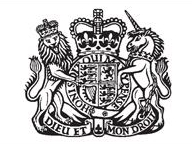Hundreds of university professors criticise controversial new terror laws
3 February 2015
Over 500 of the UK's most senior academics have signed a letter in today's Guardian warning that controversial new laws aimed at tackling extremism would place an unlawful and unenforceable duty on universities.
The professors say they are deeply concerned by the counter-terrorism and security bill currently being debated in the House of Lords, which they argue is both unnecessary and ill-conceived.
They call on the government to urgently rethink the plans and take steps to ensure that academic freedom remains uncompromised by any efforts to tackle extremism in the UK. Legal experts have suggested the proposals would be in conflict with existing freedom of speech laws.
Robert Moretto, who has advised government departments including the Home Office, Cabinet Office and Department of Justice, has raised concerns in legal guidance that the new prevent duty guidance in the counter-terrorism and security bill is unworkable as it clashes with the duty for academic freedom currently enshrined in the Education (No. 2) Act 1986.
The professors say that one of the purposes of post-compulsory education is to foster critical thinking in staff, students and society more widely. Our universities and colleges are centres for debate and open discussion, where received wisdom can be challenged and controversial ideas put forward in the spirit of academic endeavour.
They conclude that draconian crackdowns on the rights of academics and students will not achieve the ends the government says it seeks.
UCU general secretary, Sally Hunt, said: 'There is widespread disquiet across the academic community about the government's ill-conceived counter-terrorism and security bill and the threat it poses to free speech on campus.
'The best response to acts of terror is to retain our universities and colleges as open democratic spaces, rather than to close down debate and create mistrust between teacher and student, which is what the bill would do.'
- PrintPrint this page
- Share



Comments